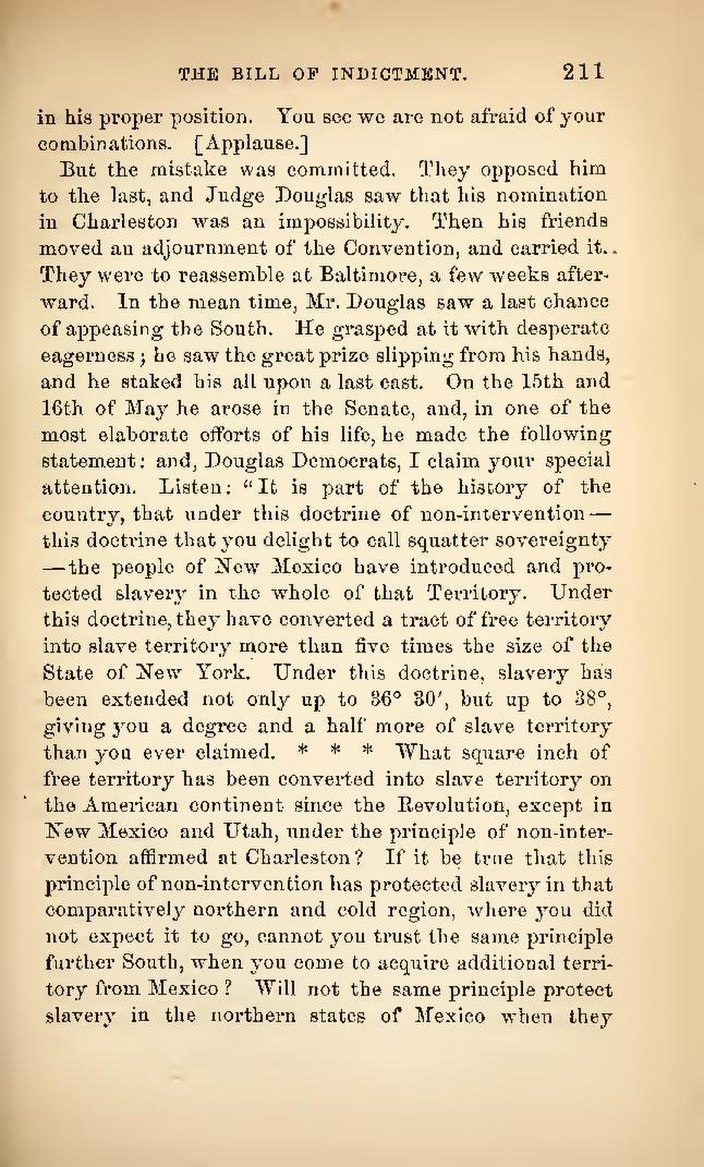in his proper position. You see we are not afraid of your combinations. [Applause.]
But the mistake was committed. They opposed him to the last, and Judge Douglas saw that his nomination in Charleston was an impossibility. Then his friends moved an adjournment of the Convention, and carried it. They were to reassemble at Baltimore, a few weeks afterward. In the mean time, Mr. Douglas saw a last chance of appeasing the South. He grasped at it with desperate eagerness; he saw the great prize slipping from his hands, and he staked his all upon a last cast. On the 15th and 16th of May he arose in the Senate, and, in one of the most elaborate efforts of his life, he made the following statement: and, Douglas Democrats, I claim your special attention. Listen: “It is part of the history of the country, that under this doctrine of non-intervention—this doctrine that you delight to call squatter sovereignty—the people of New Mexico have introduced and protected slavery in the whole of that Territory. Under this doctrine, they have converted a tract of free territory into slave territory more than five times the size of the State of Now York. Under this doctrine, slavery has been extended not only up to 36° 30′, but up to 38°, giving you a degree and a half more of slave territory than you ever claimed. * * * What square inch of free territory has been converted into slave territory on the American continent since the Revolution, except in New Mexico and Utah, under the principle of non-intervention affirmed at Charleston? If it be true that this principle of non-intervention has protected slavery in that comparatively northern and cold region, where you did not expect it to go, cannot you trust the same principle further South, when you come to acquire additional territory from Mexico? Will not the same principle protect slavery in the northern states of Mexico when they
